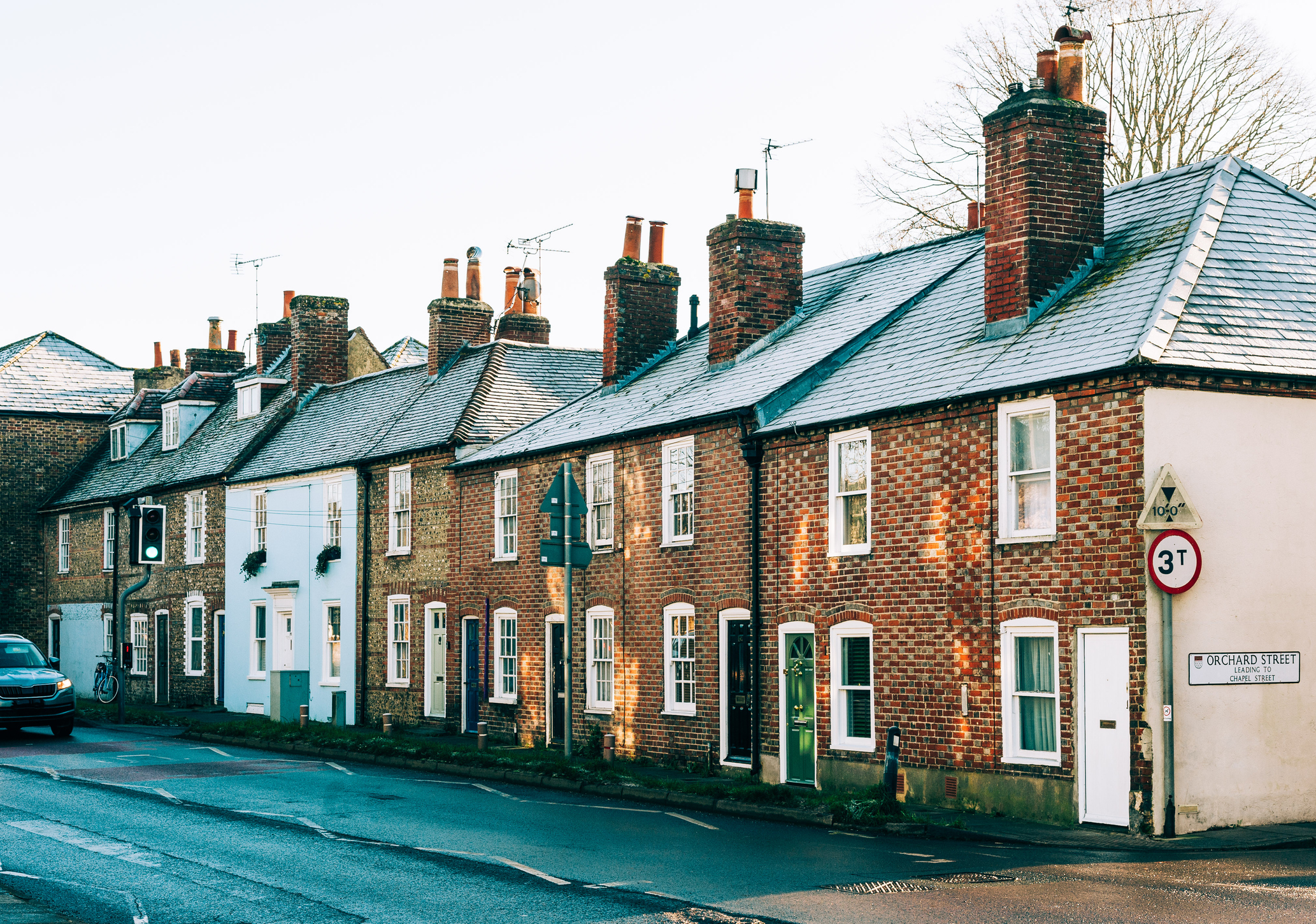Halifax: House prices fall for the fourth month in a row
Higher interest rates have wiped nearly £1,000 off the average UK house price between June and July.


Get the latest financial news, insights and expert analysis from our award-winning MoneyWeek team, to help you understand what really matters when it comes to your finances.
You are now subscribed
Your newsletter sign-up was successful
Want to add more newsletters?

Twice daily
MoneyWeek
Get the latest financial news, insights and expert analysis from our award-winning MoneyWeek team, to help you understand what really matters when it comes to your finances.

Four times a week
Look After My Bills
Sign up to our free money-saving newsletter, filled with the latest news and expert advice to help you find the best tips and deals for managing your bills. Start saving today!
Average UK house prices fell by 0.3% in July, marking the fourth monthly decline in a row, with nearly £1,000 knocked off the average house price between June and July, according to Halifax.
This is 2.4% lower than a year ago, easing from a 2.6% fall in June.
The typical UK home now costs £285,044. That’s nearly £1,000 less than July’s average of £286,011 - and around £9,000 less than the peak last August, Halifax said.
MoneyWeek
Subscribe to MoneyWeek today and get your first six magazine issues absolutely FREE

Sign up to Money Morning
Don't miss the latest investment and personal finances news, market analysis, plus money-saving tips with our free twice-daily newsletter
Don't miss the latest investment and personal finances news, market analysis, plus money-saving tips with our free twice-daily newsletter
It comes amid high street lenders starting to cut mortgage rates following a better-than-expected drop in inflation in June.
First-time buyer purchases hold up
Kim Kinnaird, director at Halifax Mortgages, said: “Average UK house prices edged down slightly in July, with the monthly fall of 0.3% equivalent to a drop of around £1,000 in cash terms. While this was the fourth consecutive monthly decrease, all have been smaller than (minus) 0.5%.
“In reality, prices are little changed over the last six months, with the typical property now costing £285,044, compared to £285,660 in February.”
She added: “In particular, we’re seeing activity amongst first-time buyers hold up relatively well, with indications some are now searching for smaller homes, to offset higher borrowing costs.
“Conversely the buy-to-let sector appears to be under some pressure, though elevated interest rates are just one factor impacting landlords’ business models, together with considerations of future rental market reforms. It remains to be seen how many may choose to exit and what that could mean for the supply of properties available to buy.
House price falls to be gradual
Looking to the future, Halifax says that high borrowing costs appear to have stabilised so house price falls are likely to be gradual rather than dramatic drops.
Kinnaird adds: “Prospects for the UK housing market remain closely linked to the performance of the wider economy. Several factors are providing support, notably strong wage growth, running at around 7% annually. And, while the uptick in unemployment is likely to restrain that somewhat, it seems unlikely to reach levels that would trigger a sharp deterioration in conditions.
“Expectations of further base rate increases from the Bank of England were tempered by a better-than-expected inflation report for June. However, while there have been recent signs of borrowing costs stabilising or even falling, they will likely remain much higher than homeowners have become used to over the last decade.
“The continued affordability squeeze will mean constrained market activity persists, and we expect house prices to continue to fall into next year. Based on our current economic assumptions, we anticipate that being a gradual rather than a precipitous decline. And one that is unlikely to fully reverse the house price growth recorded over recent years, with average property prices still some £45,000 (19%) above pre-Covid levels.”
Experts say market is resilient
While it’s difficult to predict how deep and long-lasting the downturn in house prices will be, a number of experts say market activity is holding up.
Tom Bill, head of UK residential research at Knight Frank, said: “While we expect UK prices to fall by 5% in 2023, demand should prove more resilient than expected given the shock-absorber effect of strong wage growth, lockdown savings, the availability of longer mortgage terms, forbearance from lenders and the popularity of fixed-rate deals in recent years.”
Some property professionals said activity is strong among first-time buyers in particular.
Nicky Stevenson, managing director at estate agent group Fine & Country, said: “Smaller homes in affordable locations close to major employment hotspots are the biggest draw at the moment, and these are also enticing first-time buyers to the market.”
Jeremy Leaf, a north London estate agent, said: “A growing expectation that inflation and interest rates are nearing their respective peaks, combined with continuing strong employment, are all helping to underpin activity.
“Affordability is still a concern, especially for those on tighter budgets, often buying smaller properties so the market remains price sensitive.”
Gareth Lewis, managing director of property lender MT Finance, said: “The continued decline in house prices is unsurprising as the market remains impacted by rate uncertainty and affordability issues.
“Buyers are continuing to either play the waiting game or become more aggressive when offering on properties. But there are positive signs – there is still the desire to buy, but with a realignment with what is realistic or achievable in value.
“The housing market is resilient, there are still not enough houses to go around so we will likely continue to see strong values, even with so much uncertainty.”
Where are prices falling the most?
Average house prices are continuing to fall in most parts of the UK - except, remarkably, the West Midlands where prices have not gone up or down. Here, an average house in the area now costs £250,285.
The south east of England saw house prices experience the greatest falls with a 3.9% annual fall and an average house price of £382,489.
London is not far behind, registering an annual decrease of 3.5% with an average house price of £531,141.
Welsh house prices recorded a year-on-year fall of 3.3% with a typical house now costing £214,495.
In Scotland, prices were down 0.7% to an average of £201,501 while in Northern Ireland, they were down 0.3% with an average house price standing at £185,322.
Join us at the MoneyWeek Summit on 29.09.2023 at etc.venues St Paul's, London.
Tickets are on sale at www.moneyweeksummit.com
MoneyWeek subscribers receive a 25% discount.
Get the latest financial news, insights and expert analysis from our award-winning MoneyWeek team, to help you understand what really matters when it comes to your finances.
Katie is deputy editor of Times Money Mentor and long-time contributor to the Sunday Times where she started on the Irish desk in 2012 and spent 10 years covering news, culture, travel, personal finance and celebrity interviews.
Her investigative work on financial abuse has examined the response of banks, the Financial Ombudsman and the child maintenance service to victims, and resulted in a number of debt and mortgage prisoners being set free - and a nomination for Best Finance Story of the Year at the Headline Money awards in 2021 and 2022.
Katie was also shortlisted for Freelance Journalist of the Year at the Headline Money awards in 2022, 2023 and 2024 and won Personal Finance Journalist of the Year at The British Bank Awards 2022.
-
 Should you buy an active ETF?
Should you buy an active ETF?ETFs are often mischaracterised as passive products, but they can be a convenient way to add active management to your portfolio
-
 Power up your pension before 5 April – easy ways to save before the tax year end
Power up your pension before 5 April – easy ways to save before the tax year endWith the end of the tax year looming, pension savers currently have a window to review and maximise what’s going into their retirement funds – we look at how
-
 Halifax: House price slump continues as prices slide for the sixth consecutive month
Halifax: House price slump continues as prices slide for the sixth consecutive monthUK house prices fell again in September as buyers returned, but the slowdown was not as fast as anticipated, latest Halifax data shows. Where are house prices falling the most?
-
 Rents hit a record high - but is the opportunity for buy-to-let investors still strong?
Rents hit a record high - but is the opportunity for buy-to-let investors still strong?UK rent prices have hit a record high with the average hitting over £1,200 a month says Rightmove. Are there still opportunities in buy-to-let?
-
 Pension savers turn to gold investments
Pension savers turn to gold investmentsInvestors are racing to buy gold to protect their pensions from a stock market correction and high inflation, experts say
-
 Where to find the best returns from student accommodation
Where to find the best returns from student accommodationStudent accommodation can be a lucrative investment if you know where to look.
-
 The world’s best bargain stocks
The world’s best bargain stocksSearching for bargain stocks with Alec Cutler of the Orbis Global Balanced Fund, who tells Andrew Van Sickle which sectors are being overlooked.
-
 Revealed: the cheapest cities to own a home in Britain
Revealed: the cheapest cities to own a home in BritainNew research reveals the cheapest cities to own a home, taking account of mortgage payments, utility bills and council tax
-
 UK recession: How to protect your portfolio
UK recession: How to protect your portfolioAs the UK recession is confirmed, we look at ways to protect your wealth.
-
 Buy-to-let returns fall 59% amid higher mortgage rates
Buy-to-let returns fall 59% amid higher mortgage ratesBuy-to-let returns are slumping as the cost of borrowing spirals.
